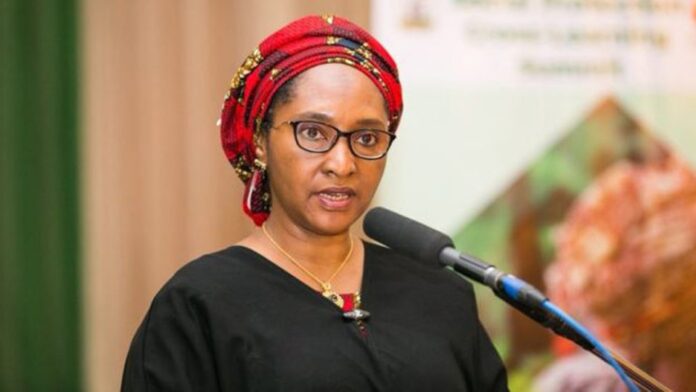By Jeph Ajobaju, Chief Copy Editor
Nigeria is obtaining loans sensibly to invest in infrastructure such as power, water, and roads, to lift the economy, says Finance Minister Zainab Ahmed, who insists that borrowing is still low at 23 per cent of Gross Domestic Product (GDP).
She cited the latest report of the National Bureau of Statistics (NBS) which shows that GDP rose 5.01 per cent year-on-year (YoY) in the second quarter of 2021 (Q2 2021), in three straight quarters of growth after slumps in Q2 2020 and Q3 2020.
Nigeria’s debt rose by N20.8 trillion to N32.92 trillion between June 2015 and December 2020, and to N33.11 trillion in the first quarter of 2021 (Q1 2021), according to Debt Management Office (DMO) data.
Servicing the debt cost N1.8 trillion between January and May this year, creating concern for local and foreign financial experts who warn of the risks.
World Bank, AfDB warn of loan default
Both the World Bank and the African Development Bank (AfDB) have expressed concern that Nigeria and other African countries run the risk of defaulting on loan repayments.
A major problem is that most loans taken by African countries are not invested in infrastructure to yield returns to pay off debt. Where loans are invested, contracts are heavily inflated with the extra amount siphoned into personal pockets as bribe.
Regardless, Abuja is pressing on to obtain more loans.
“We are borrowing with a very close consideration to the sustainability of the borrowing. The borrowing level for Nigeria today is still 23 per cent of GDP,” Ahmed said, reported by the News Agency of Nigeria (NAN).
“I have said it several times that the problem we have in Nigeria is that of revenue and when you look at the countries that are within the peer group with Nigeria, there are some that had 50 per cent growth that are now at about 70 per cent growth.”
She said revenue growth is at 53 per cent despite escalated borrowing in 2020 and 2021 to get a grip on economic slump caused by the pandemic and oil price crash.
Investment to enhance productivity
“We are borrowing sensibly, we are also borrowing to invest in critical infrastructure like power, water, roads and rails which are investments that are required to enhance business productivity in the country today,” Ahmed added.
“These businesses will grow, they will not only pay taxes, they will also employ people. If we don’t do this, we will regress even from where we are today. It is a necessary investment so we are borrowing responsibly.”
She said the federal government is ensuring that loans are used to fund major infrastructure that will return revenue in the near future.
Debt servicing takes 98% of revenue in 5 months
Nairametrics reported last month that Abuja spent N1.8 trillion on debt servicing in the first five months of the year, about 98 per cent of revenue in the same period.
In June, the DMO disclosed that Nigeria’s debt rose by N191 billion in Q1 2021, a 0.58 per cent increase from N32.916 trillion in Q4 2020.
Total debt increased to N33.107 trillion in Q1 2021, up from N32.916 trillion in Q4 2020.













